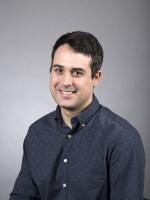The Schenectady City Council on Monday will consider distributing more than $14 million in American Rescue Plan Act COVID-relief funding. But the process the city council has taken has generated scrutiny.
The city is set to receive more than $52 million in APRA aid, in two separate tranches. About $16 million has already been allocated to offset losses incurred by the pandemic.
In December, the city put out a call for interested community organizations and non-profits to submit requests for federal aid – more than $70 million has been requested.
It was reported last week that when projects were presented at the city council’s Monday committee meeting by council members, details about the projects were not made available prior to the meeting.
But with final approvals set for several projects set for Monday, Democratic City Council President Marion Porterfield believes the process up to this point – including a survey and neighborhood meetings last fall – has been transparent.
Porterfield spoke with WAMC's Lucas Willard about the allocation process:
The deadline to allocate is the end of 2024. And the deadline to spend money is the end of 2026.
Two of the biggest projects on the list that's being considered right now are the Central Park pool, and the Schenectady Municipal Golf Course irrigation system. And that's about four and a half million dollars and three and a half million dollars respectively, are those projects, just taking those as the largest ones, as an example, are those projects that could not be afforded without the federal funding?
Well, we would have to bond the money so we would have to borrow in order to get the money that we could, you know, they could be afforded, but we'd have to borrow in order to get it. So, this means that we don't have to do that.
Will there be any opportunities moving forward, for people to, for the public to provide their to provide their input on how the projects are selected? Or will there be another round of applications that can be opened for the remaining 20 or so million dollars that's left?
So that's a that's up for discussion. There had been conversations around this having another round of applications. However, at the last meeting, at least one council member made it very clear that they were not supportive of doing that, they were not actually not even supportive of having applications the first round. So, as I said, we had discussions regarding that. And so that's something the council has to come to decision on in terms of their main funding.
So, given that sentiment, what's your assessment on overall on how the process has played out to this point? And do you think that the city council is operating as efficiently as it could, and as I guess, in the in the best way that it can be with being forthcoming about the projects as well?
So, I want to make this is a new process. So of course, it's bumpy along the way. And there's, you know, there's definitely a learning curve. It is something we hadn't done before. And the process is meant to be inclusive to make sure that all the decisions aren't simply made by the city and the city council and the mayor, however, that because it is a one-time pot of money, we will never, we don't intend that we will see it again. Hopefully, there won't be another pandemic. And so, I think in light of that, we've certainly done the best we could. Could things have gone more smoothly? Absolutely. But as I said, we've never done it before. So. So there's some things that probably could have done better. And, you know, we've learned from that.
Do you feel good about the projects that were discussed this past week and the list will see final approval on Monday?
Well, you never know what's going to happen, because there's always opportunity for roll call votes. So I can't say what's going to happen, I can say that they did pass out of committee. And there seem to be a majority of people that, for the projects that were chosen, which of the council members were very supportive of. And so, we chose projects, I believe, that are very inclusive. And we chose projects that will create revenue for the for the city, which is very important. And also made sure that we include projects and organizations who don't normally have the opportunity, but certainly have the need. And also they provide services to a marginalized group of people who don't always, aren't always able to get the funding, they need to make sure that the services they do can continue.
So, I'm comfortable in the projects that we chose, because I believe it covers a spectrum of things. And then there's more to common, you know, housing and food security, were two of the to the main things that came out in the surveys. So, we did choose projects that address that. And then we will move forward in terms of continuing to choose projects.
And let me also say that in terms of the second round of funding, I don't know what that amount would be if there even were to be a second round of funding. Because if you look at the round the funding that we just actually asked for applications for, it was only a little bit over $11 million, because the city had reimbursed itself for various things and you aside money that was allowed from the guidelines for ARPA, instead of about $16 million before we actually opened this process for applications.





